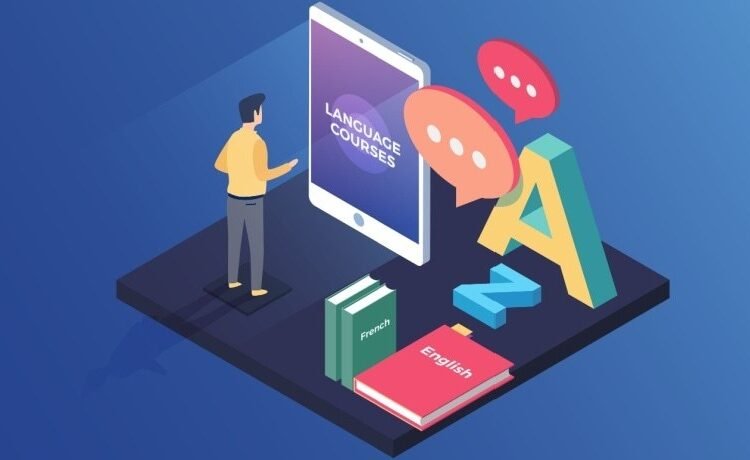
Consider eLearning Over In-Person Tutoring
Technology has revolutionized the way we acquire new skills, and language learning is no exception. eLearning provides a flexible, engaging, and effective approach to mastering a new language, making it accessible to learners worldwide. Whether for professional growth, academic success, or personal enrichment, online language courses offer numerous advantages over traditional classroom methods. Below, we explore the key benefits of eLearning when learning a new language.
Benefits Of Using eLearning For Learning A New Language
1. Flexibility And Convenience
One of the biggest advantages of eLearning is the ability to learn anytime, anywhere. Unlike traditional classes with fixed schedules, online courses allow learners to progress at their own pace. This is particularly beneficial for busy professionals, students, and individuals with family commitments who may struggle to attend in-person classes. This also cuts out the limitation of only being able to attend classes and courses in the local area. eLearning opens your opportunities to an array of options, not only what is within walking or driving distance.
2. Cost-Effective Learning
eLearning is often more affordable than traditional language courses. There are no commuting costs, expensive textbooks, or hidden fees. Many platforms offer free resources, budget-friendly subscriptions, or pay-as-you-go models, making quality language education accessible to a wider audience. One-time payments for online courses make it much more attractive than a pay-per-class scenario, unclear of how many classes would be needed.
3. Access To A Vast Range Of Learning Materials
Online language courses provide diverse resources, including video lessons, interactive exercises, digital flashcards, podcasts, and quizzes. This variety caters to different learning styles, ensuring that visual, auditory, and kinesthetic learners all benefit from an enriched learning experience.
4. Interactive And Engaging Learning Experience
Modern eLearning platforms utilize advanced technologies such as AI-powered tutors, gamification, and real-world simulations to create immersive learning environments. Interactive elements like speech recognition tools and Virtual Reality (VR) experiences enhance retention and make language learning more enjoyable.
5. Personalized Learning Paths
eLearning platforms often use Artificial Intelligence (AI) and Machine Learning algorithms to assess a learner’s proficiency and tailor content accordingly. Personalized learning ensures that students focus on their weak areas while accelerating through topics they already understand, leading to more efficient language acquisition.
6. Exposure To A Global Learning Community
Online language courses connect learners with a global community, allowing them to practice with both native and non-native speakers. Virtual classrooms, language exchange forums, and live chat features provide real-world conversation practice, fostering cultural awareness and confidence in communication.
7. Specialized Language Learning Courses
Many eLearning platforms offer industry-specific courses tailored to professionals in fields such as business, healthcare, and technology. This specialized training helps learners acquire relevant vocabulary and communication skills needed for their careers, increasing their professional competitiveness.
8. Self-Paced Learning And Repetition
Unlike traditional classrooms where students must follow a set curriculum, eLearning allows individuals to progress at their own speed. Learners can revisit lessons, replay videos, and review exercises as often as needed, reinforcing comprehension and retention.
9. Development Of Digital Literacy Skills
Engaging with eLearning platforms helps learners develop valuable digital literacy skills, such as navigating online resources, utilizing collaboration tools, and engaging in virtual communication. These skills are increasingly essential in today’s digital-first world.
10. Certification And Career Advancement
Many online language courses provide certifications upon completion, which can enhance job prospects and academic opportunities. Proficiency in a new language, backed by recognized credentials, can open doors to international career opportunities and higher education.
11. Maintain Human Interaction
Many eLearning platforms provide access to tutors. Being online does not mean losing human interaction. For language learning, native-speaking instructors and language exchange partners can be available. This direct interaction helps learners improve pronunciation, understand cultural nuances, and gain confidence in real-life conversations. Practicing with native speakers enhances fluency and ensures a more authentic grasp of the language.
12. Enhanced Retention Through Multimedia Integration
eLearning platforms incorporate multimedia elements such as audio recordings, animations, and interactive storytelling to reinforce learning. Studies show that engaging multiple senses aids in retention and comprehension, making the language learning process more effective and enjoyable.
Conclusion
eLearning has transformed language acquisition by making it more flexible, interactive, and accessible. With the ability to learn at one’s own pace, access a wealth of resources, and engage with a global community, mastering a new language has never been easier. Whether for personal growth, career advancement, or academic success, eLearning provides an effective and convenient pathway to language proficiency.















